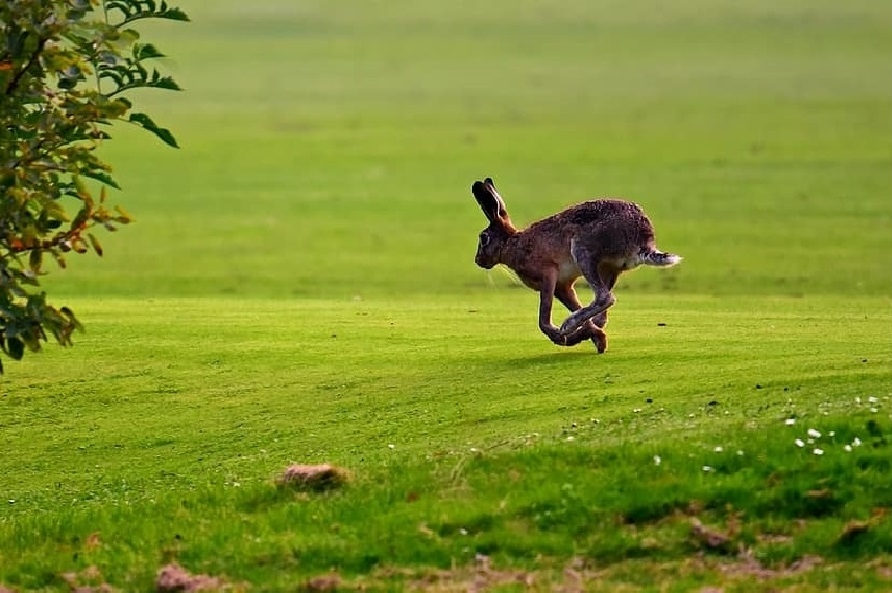Hare Coursing

Leading farming, animal welfare and countryside organisations, alongside rural Police and Crime Commissioners, have urged the Government to revise ‘inadequate’ legislation that is hindering attempts to tackle the devastating impact of illegal hare coursing on the British countryside.
In a letter to the Secretary of State for Defra and the Home Office, the coalition1, which includes the NFU, CLA and Countryside Alliance, has called for the 1831 Game Act to be amended2 to give enhanced powers to the police and criminal justice system, including:
• Giving the police and courts full seizure and forfeiture powers for dogs and vehicles
• Removing the existing limits on the penalties that can be imposed, which is currently a maximum £1000 fine.
• Enabling police to recover kenneling costs from offenders
It is also asking for better information and guidance for magistrates and prosecutors and support for a more effective approach from the police, building on the success of initiatives such as Operation Galileo3, which has seen hare coursing incidents in Lincolnshire reduce from nearly 1579 in 16/17 to 686 in 18/19.
Joint Statement
In a joint statement, the coalition said: “There is no doubt that hare coursing is as prevalent as ever and having huge impacts on rural communities. Whether it is farmers being intimidated and threatened by coursers, the damage their vehicles cause to our iconic landscape or the cruelty this inflicts on our native wildlife, the impacts on the British countryside from illegal hare coursing are huge.
“Despite success in some parts of the country, we are still seeing increased incidents of hare coursing overall.
“It is clear to us, our members and the police that relying on legislation that is nearly 200 years old is simply inadequate and in need of urgent reform. That’s why we are asking the Government to support simple changes to the Game Act that would give police the powers they need to properly tackle this crime and deter criminals with a sentence that fits the crime.
“As a coalition, we will continue to raise this issue with Government at the highest level and ensure they recognise the importance of tackling rural crimes to rural communities up and down the country.”
Hare Coursing
Hare coursing is a bloodsport where dogs are used to chase, catch and kill hares.
It is illegal in the UK under the Hunting Act 2004, which makes it an offence to hunt wild mammals with dogs. Anyone convicted of the offence can receive a fine of up to £5,000 by a Magistrates' Court.
Legislation also gives police the powers to seize and detain vehicles until the court hearing. Powers to seize vehicles may also be granted under section 30 of the Game Act 1831.
Hare coursing tends to start after harvest when large areas of land have been cleared of standing crops. It usually occurs at dawn or dusk.
Lincolnshire's flat, rural landscape makes it a popular area for hare coursing. It often attracts coursers from outside of the county.
What to look out for
You can help us fight hare coursing by looking out for activity in your area.
- The most obvious sign is groups of vehicles parked in a rural area, perhaps by a gateway to farmland, on a grass verge, on a farm track or bridle path.
- They will usually be estate cars, four wheel drives or vans. It will be obvious looking inside whether there is evidence of dogs or not.
- They often travel in convoy, with vans at the front and rear containing minders.
- They will often use binoculars to spot hares.
- Coursers will often walk along the edge of a field to frighten a hare into the open.
Report it
If you see hare coursing taking place, or suspect it is happening in your area contact us immediately on 101. We advise that you do not approach the participants.
It may help us if you can answer any of the questions when reporting wildlife crime:
- •- Are the suspect/s alone or in a group?
- •- Are they trespassing?
- •- Do they have equipment with them?
- •- Do they have dogs or firearms with them?
- •- Where are they going?
- •- Where have they been?
- •- What do they look like?
- •- Have they any vehicles?
- •- What are the number plates and vehicle models?
- •- Can you safely get a photograph?
You can also report it online.
More help and support
National Rural Crime Network - www.nationalruralcrimenetwork.net
